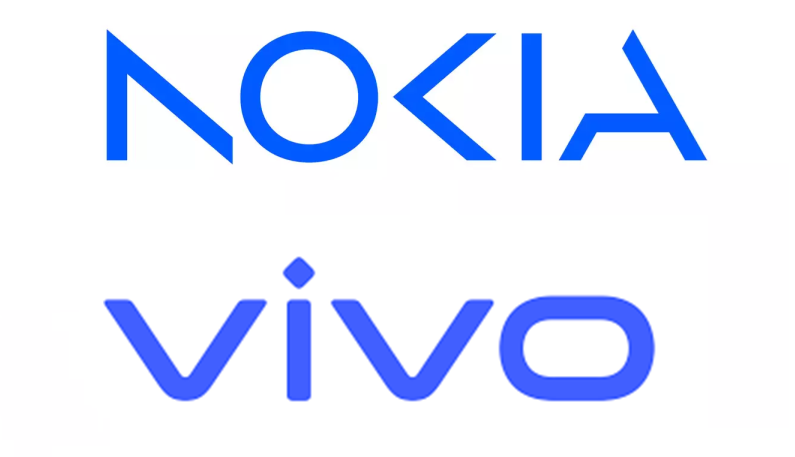Context: In recent years, the 5G patent dispute between Nokia and OPPO was the longest-running of its kind. It settled out before Chinese New Year (January 24, 2024 ip fray article). The dispute betwen Nokia and vivo, which was likewise primarily—but not exclusively—about 5G standard-essential patents (SEPs), started a little later. In early 2022, different courts started issuing publicly discovery orders and confirming the pendency of cases. Over time, cases were discovered in China, India, Indonesia, Malaysia and Germany. Just like OPPO, vivo also left the German market over patent injunctions. Also just like OPPO, vivo was seeking a FRAND determination from the same court in Chongqing.
What’s new: Today, even closer to Chinese New Year, Nokia issued a press release announcing a settlement on (as always) undisclosed terms other than that it is a cross-license (vivo, like OPPO, was countersuing Nokia over 5G SEPs) under which Nokia, the net licensor, is to “receive payments from vivo for a multi-year period along with catch-up payments to cover the dispute period.”
Direct impact: For Nokia it’s “the sixth major smartphone patent license agreement … signed in the past thirteen months” and the settlement of another multijurisdictional dispute. For vivo it’s also an opportunity to focus on more productive endeavors, and the company emphasizes in its statement its “invest[ment] in R&D of smart devices and intelligent services, providing extraordinary hi-tech products and services for users worldwide.”
Wider ramifications: Once again, a Chinese company is a party to a major license deal, and as is increasingly often the case, they’re not merely a licensee but also a (cross-)licensor. Just yesterday, ip fray reported on a politically charged complaint by Netgear against Huawei (February 4, 2024 ip fray article) and recalled the fact that China-bashing (alternatingly affecting Chinese companies that enforce patents as well as those that defend against patent assertions) ignores the far more nuanced reality of Chinese companies sitting on both sides of the license negotiating table. Other examples include Avanci’s Zenview announcement (January 25, 2024 ip fray article) and Sisvel’s agreements with ZTE and TCL (January 29, 2024 ip fray article).
It is not purely coincidental that Nokia and vivo struck an agreement shortly after OPPO and Nokia did. Those two smartphone makers operate independently, though vivo also has a BBK connection, at least historically. But they have a similar profile in terms of where in the world they mostly sell their phones (with vivo, on average, being lower-priced), and the battlefield in the two Nokia disputes looked similar. In particular, it became foreseeable for Nokia that (like anywhere else in the world) the same court would have been unlikely to make two inconsistent FRAND determinations concerning the same portfolio in short order.
If anything, there was probably a risk of the FRAND determination in the vivo case being lower due to vivo’s lower average selling price. The settlement has avoided that scenario altogether.
The combined unit volume of those two license deals that Nokia concluded within only two weeks of each other is huge (possibly larger than any other smartphone maker in the world, or at least not far below the number one). Nokia Technologies president Jenni Lukander rightly describes vivo in today’s statement as “one of the leading players in the global smartphone industry.”
Xianwen Xu, the general manager of vivo’s legal department, says the deal “plays a significant role in fostering a positive development environment within the industry.”
There was no indication of vivo coming as close to a potential injunction against Nokia as OPPO did (in whose case it would very likely have happened in a matter of months). But the press release is very much about mutual respect of IP. It’s clear that vivo, too, is in a position to countersue over its own patents.
Nokia’s statement says the company has “now almost completed {its] smartphone license renewal cycle.” Recent deals include the ones with Huawei in December 2022; Samsung in January 2023; Apple in June 2023; Honor on January 4, 2024 (ip fray article); OPPO on January 24, 2024 (ip fray article); and now vivo. The question is then with what remaining smartphone maker(s) Nokia has yet to reach an agreement on a renewal. HMD is partly owned by Nokia and unlikely to be be a problem, though HMD is known to defend vigorously in some other cases. Xiaomi is generally very licensing-oriented and tends to avoid litigation (or at least to settle disputes ahead of major decisions). Its average selling price is higher than that of OPPO and vivo, and Xiaomi would be more vulnerable to patent assertions in such markets as Germany. There is a good chance that Nokia is not going to have to enforce against any major smartphone maker for years to come, enabling the company to focus on fields in which its IP licensing business has major growth opportunities.

